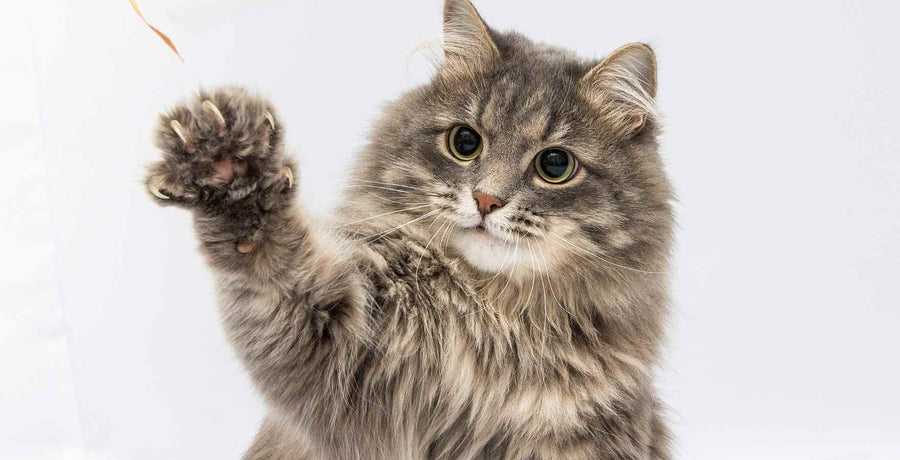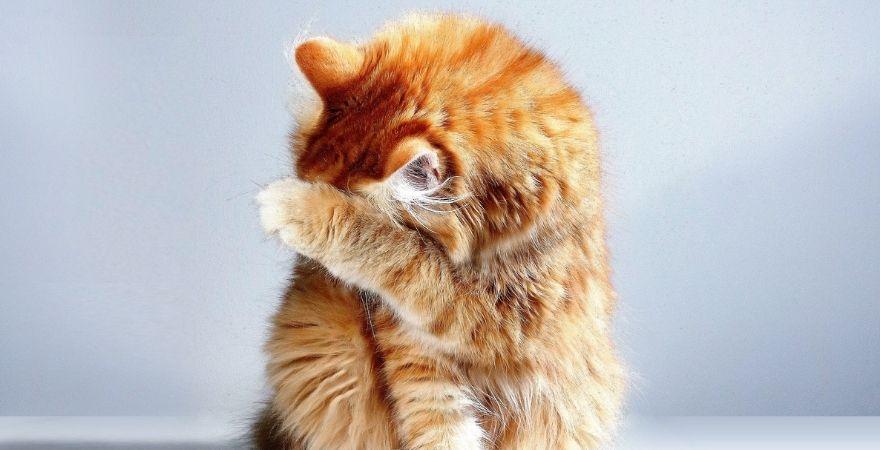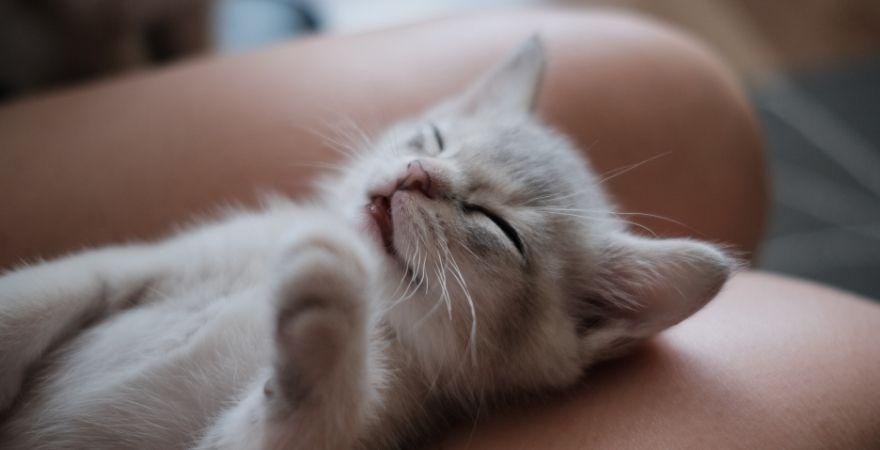
If you’re reading this you may have just received the news that your cat has been diagnosed with Chronic Kidney Disease (CKD).
Now, your cat isn’t just a pet, its a part of your family. And with any diagnosis received by a family member, getting your head around it can be difficult. Not only do you have to deal with the whirlwind of emotions rushing through you. You also have to be level headed enough to properly nurse your fur baby.
Talk about pressure.
But look. Remember this. You are not alone.
CKD is one of the most common illnesses to affect cats, with and estimated 30% of all cats over the age of 15 being diagnosed with the condition.
And for the vast majority of cats diagnosed with CKD, it is not the end of the road. With the appropriate treatment and correct care your cat will continue to enjoy a happy life for many years to come.
This is why we’ve thrown together a quick little guide, that’ll answer any of the immediate questions you may have following your cats CKD diagnosis.
Is it my fault my cat has been diagnosed with CKD and could I have prevented it?
It is often our gut reaction whenever a pet is ill to assume that it is our fault. Its not a bad thing. In fact, it shows our human compassion and is a completely natural reaction.
But here’s the truth, CKD is a medical condition and in most cases not something that has developed due to the fault of you – the owner.
Nor, is the condition in many cases preventable, particularly for cats in old age. Try to think of it in relation to humans… There are a number of conditions linked to old age that any one of us can develop for no reason and the same goes for cats.
Our advice: Don't dwell on what you could have done for your cat prior to their diagnosis and instead focus on what you can do now and in the future to give your cat the best possible quality of life.
Is it life threatening?
The truth? Yes. The kidney is an essential body organ for your furball. So any cat with kidney issues will have a reduced life expectancy. But don’t panic. Many cats with CKD go on to live long and full lives once a diagnosis is made, and they begin to receive treatment for the condition. For example, cats that go on to eat special prescription renal diets, go on to have double the life expectancy compared to cats with CKD who eat standard food.
Is my cat in pain?
With the shock of your cat’s diagnosis, you’re probably currently feeling more distressed than your cat!
Of course, it is impossible to say for certain if you cat is in any pain, you vet will be able to give you a better understanding of this, depending on the stage of their condition.
For cats diagnosed in the earlier stages of CKD it is likely that with the correct, ongoing care they will be feeling back to normal in no time.
Our advice: Carefully consider the most appropriate methods of treatment for your cat and ensure that your cat attends regular veterinary checkups. As a progressive condition, it is important to monitor CKD to administer the most effective treatment for your cat.
What if I cannot cope with caring for my cat?
If your cat is newly diagnosed with CKD it is likely that you are still in shock and it is important to give yourself some time to get over this initial bombshell.
Breaking the news to family members might also be a concern for you but once you feel calm and ready to explain it to them, do so. You are there to support one another and don’t forget, your cat wouldn’t want to see you or your family upset!
Our advice: Speak to your vet regarding any concerns you may have with regards to your cat’s treatment for CKD. If you cat is difficult to medicate there are alternative treatments for this condition that will hopefully, cause as little stress as possibly for you and your cat. You can only try your best when it comes to caring for your cat and it is always better to talk about your worries rather than struggling alone.
Is it fair to put my cats on lots of different medications – am I being cruel to him/her?
Not all cats diagnosed with CKD will need medication, in general feeding your fur baby a kidney prescription diet is usually the most important thing you can do. However, in some cases further medication might be needed. This really depends on your cat. However, if you kitty does a lot of medication, please do not panic. It can seem daunting at first trying to administer pills, pockets and drops to your cat but remember:
a) Some cats aren’t not that hard to medicate
b) Some cats will have no problems eating treats with their food
c) If you cat needs to take multiple medications, grab some empty gelatin capsules from your vet. Several medicines can be put a single capsule, to give to your cat.
Nobody wants to receive the news that their pet is unwell but hopefully the advice in our guide can offer you some clarity and support to help you move forward.
If your cat has just been diagnosed with CKD, please remember:
a) Take your time to come to terms with the news and try not to rush into any decisions you are not ready to make.
b) It is not about questioning how you could have prevented your cat from developing CKD but focusing on what you can do to care for them in the future.
c) Don’t suffer in silence. Make the most of the services available to you. Ask your vet questions about you cats condition and share how you are feeling with your loved ones.
Hopefully this answers some of the tough emotional questions you may face when dealing with a CKD diagnosis. Understand that even though you may be feeling low, it will pass. Often, illnesses like CKD are out of the owners control, and beating yourself up will not help your kitty.




1 comment
My cat was diagnosed with CKD in Aug and was hospitalized and given IV fluids, he got better and then in Nov was back in the animal hospital getting IV fluids but did not do so well after being released. We were doing “subcu” fluids and more BP meds. Still not turning around, our vet told me if he doesn’t turn around in 2 days we need to talk euthanasia. I ordered the kitty chews and they were rushed to me. I’ve been crumbling them and covering them in hot water then adding the wet food. He started eating better and better and now we are giving the “subcu” fluids every 2-3 days, his fur is less “spikey”, he is not peeing outside the litter box, and all around is being a cat again!! I will continue to give him these chews, I believe they saved his life!!